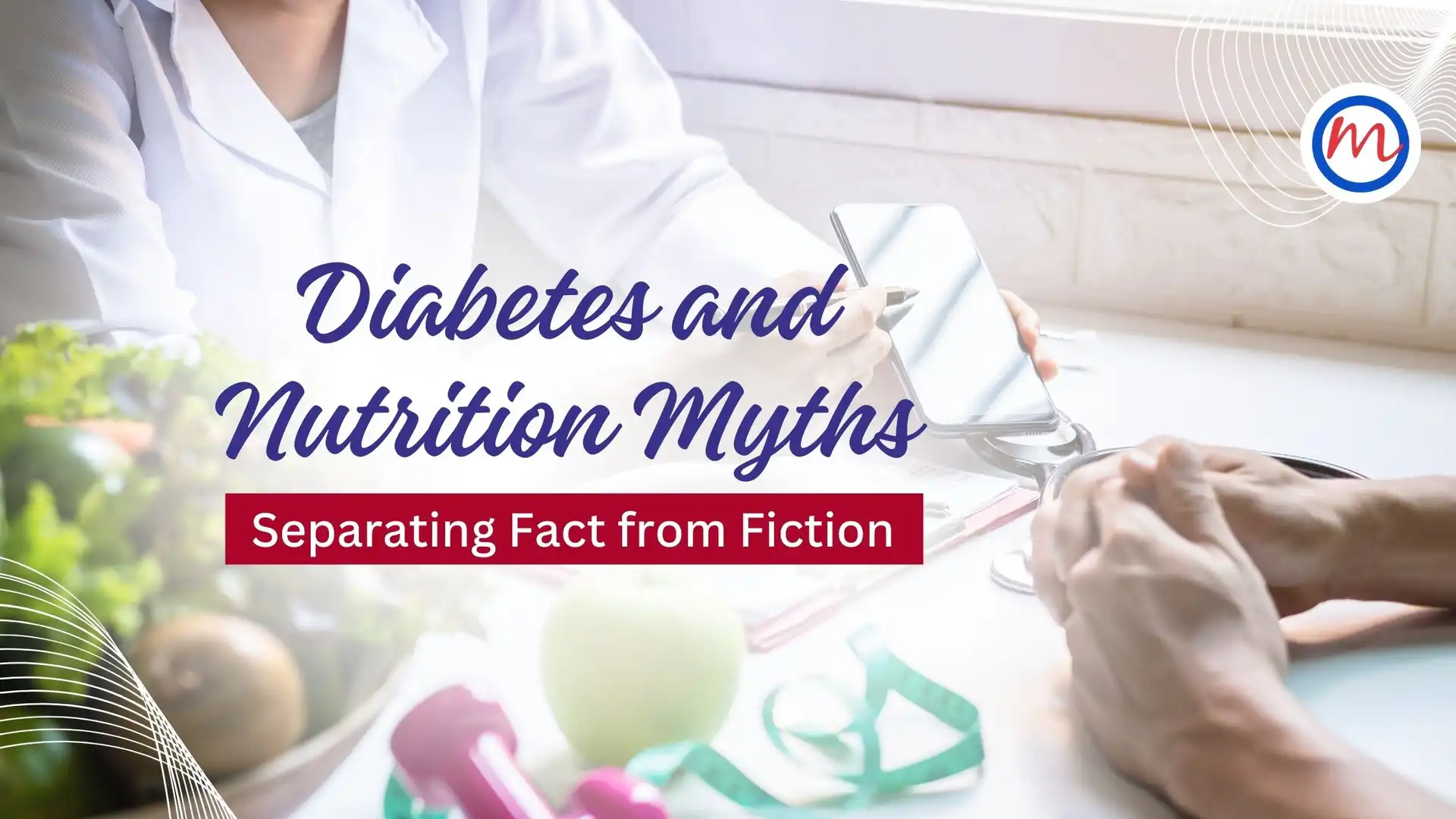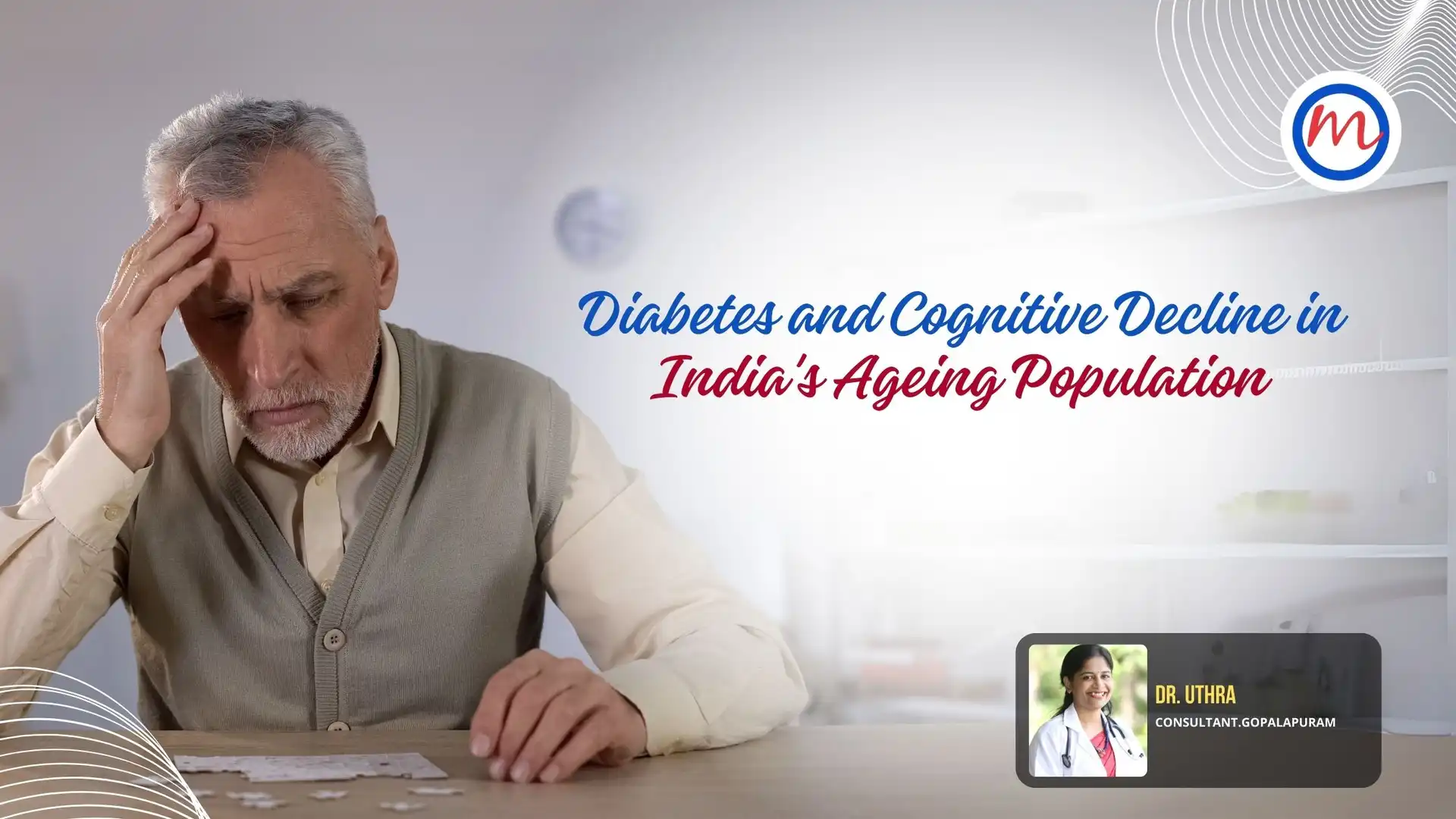Diabetes is a common health condition affecting millions of people worldwide. Managing diabetes can be challenging, especially when it comes to nutrition. Many myths surround the topic of diabetes and food, making it hard to know what is true and what is not. In this blog, we will address some of the most common diabetes and nutrition myths, including diabetes-friendly foods, and separate the facts from fiction.
Myth 1: People with Diabetes Can’t Eat Sweets
A common belief is that people with diabetes can never eat sweets. However, this is not true. People with diabetes can enjoy sweets in moderation. The focus should be on managing overall carbohydrate intake, not completely cutting out sugar. With portion control and careful planning, it is possible to enjoy sweets without negatively affecting blood sugar levels.
Can Diabetics Eat Sweets?
Sugar in the diet can raise blood sugar levels, but that doesn’t mean it needs to be avoided entirely. The key is to balance sweets with other healthy foods and keep track of overall carbohydrate intake. Moderation is important, and it is best to choose small portions when indulging in sugary treats.
Myth 2: Low-Carb Diets Are the Best for Managing Diabetes
Many people believe that the best way to manage diabetes is by following a low-carb diet for diabetes. While cutting down on carbs can help some people, it is not the best solution for everyone. Instead of avoiding all carbs, the focus should be on choosing the right kinds of carbs.
The Role of Carbohydrates in a Healthy Diet
Carbs are an important source of energy for the body. Not all carbs affect blood sugar the same way. Complex carbohydrates, like whole grains, vegetables, and beans, are digested more slowly, which helps control blood sugar levels. It is better to choose these types of carbs rather than cutting them out completely.
Low-carb diets may work for some people, but a balanced diet with a variety of healthy foods is generally the best approach.
Myth 3: People with Diabetes Should Only Eat Special “Diabetic Foods”
Some foods are marketed as diabetes-friendly foods, but they are not always the best choice. These foods might be highly processed and may contain added sugars or unhealthy fats. In many cases, these foods are more expensive and don’t offer any significant health benefits over regular, whole foods.
Why “Diabetic Foods” Aren’t Always the Best Choice
“Diabetic foods” may sound like a good option, but they often have added sugars or artificial sweeteners to improve taste. Instead of buying these products, focus on eating whole foods like fruits, vegetables, lean proteins, and whole grains. These foods are healthier and more nutritious.
Myth 4: Eating Too Much Protein is Bad for People with Diabetes
There is a belief that eating too much protein can harm kidney function in people with diabetes. While this is a concern for people with advanced kidney disease, most people with diabetes can safely eat moderate amounts of protein.
The Role of Protein in a Healthy Diet
Protein is important for maintaining muscle, repairing tissues, and supporting the immune system. Good sources of protein include chicken, fish, eggs, and plant-based foods like beans and tofu. Protein can also help stabilize blood sugar by slowing the absorption of carbohydrates.
As with anything, moderation is key. Eating too much protein can put stress on the kidneys, especially for people with kidney problems. But for most people with diabetes, moderate protein intake is safe and beneficial.
Myth 5: Drinking Fruit Juice is a Healthy Way to Get Vitamins
Many people believe that fruit juice is a healthy drink that is good for people with diabetes. However, fruit juice can cause a quick rise in blood sugar because it lacks the fibre found in whole fruits.
Whole fruits are a better choice for people with diabetes.
Fruits vs. Fruit Juices
Whole fruits, like apples, oranges, and berries, are packed with fibre and vitamins, and they have a slower effect on blood sugar. Fruit juice, on the other hand, is often high in sugar and lacks fibre, making it a poor option for blood sugar control.
If you want to enjoy fruit, choose fresh or frozen fruits and watch your portion sizes. Whole fruits are always a better option than fruit juice.
Myth 6: People with Diabetes Must Follow a Strict, Complicated Diet
Many people think that managing diabetes means following a strict, complicated diet. In reality, managing diabetes through diet can be simple and flexible. The key is to make healthy food choices and stick to a balanced diet.
Keeping It Simple
A diabetes-friendly diet doesn’t have to be complicated. Focus on eating a variety of vegetables, lean proteins, whole grains, and healthy fats. Be mindful of portion sizes and watch your carbohydrate intake. Avoid processed foods and aim for a diet full of whole, natural foods.
Managing diabetes through nutrition doesn’t require a rigid, strict diet. Instead, it’s about making smart, balanced choices that support your overall health.
Embrace a Balanced Approach to Nutrition
There are many myths surrounding diabetes and nutrition, but the truth is that managing diabetes doesn’t have to be complicated. A balanced, healthy diet with a variety of foods is the key to controlling blood sugar and staying healthy. Focus on whole, unprocessed foods, and remember that moderation is important.
Always consult with a healthcare provider or dietitian when making changes to your diet. They can provide personalized advice to help you manage diabetes effectively and live a healthy life.



